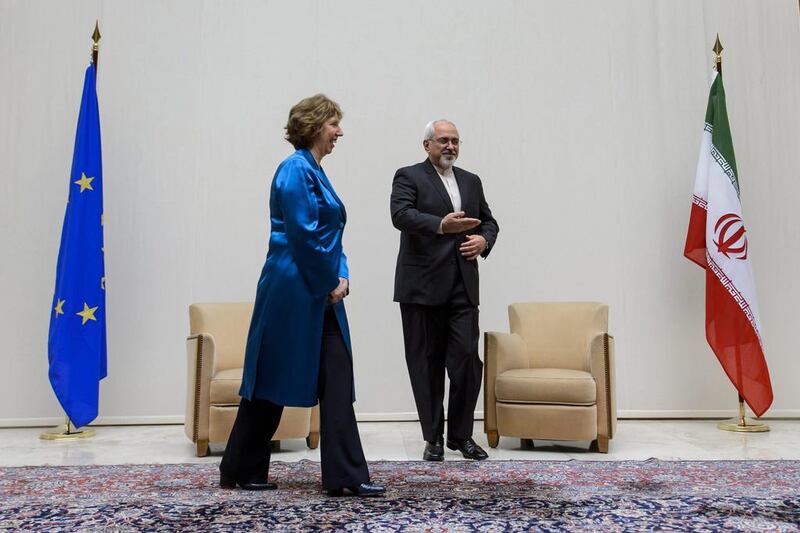Iranian negotiators put forward what they called a constructive proposal yesterday aimed at ending the impasse over its nuclear programme.
The two-day negotiations at the UN’s European headquarters in Geneva are the first since June’s surprise election of a moderate president, Hassan Rouhani.
Iran’s hour-long PowerPoint presentation, breezily entitled “Closing an unnecessary crisis, opening new horizons”, was delivered for the first time in English, western officials said, underlining a new mood in the negotiations.
“We think that the proposal we have made has the capacity to make a breakthrough,” the deputy foreign minister Abbas Araghchi said.
Alluding to the international pressure over Iran’s nuclear programme that has driven the country into near-pariah status, he said: “We no longer want to walk in the dark and uncertainty and have doubts about the future.”
Michael Mann, a spokesman for the EU’s foreign policy chief, Catherine Ashton, agreed there was a mood of “cautious optimism” after the presentation by Iranian foreign minister, Mohammad Javad Zarif.
But Mr Mann refused to divulge any details.
Still, the broad contours of Iran’s “road map” have long been apparent in its dealings with the so-called P5+1, which comprise the five permanent members of the UN Security Council, the US, Russia, China, Britain, France – plus Germany. Tehran would offer to halt enriching uranium to 20 to 10 per cent, which is a short technological leap from the 90 per cent purity of bomb-grade fissile material.
That also would meet certain key western demands. In return, Iran has two of its own. First, that the West accept its “right” to a domestic nuclear fuel cycle of between 3.5 and 5 per cent enrichment, which is sufficient for power generation. Secondly, that all sanctions imposed over Iran’s nuclear ambitions are lifted in sequenced and reciprocal steps.
Iran would accept more intrusive international inspection of its nuclear facilities but would not shutter, as the West demands, its most sensitive one at Fordo.
Tehran also declared last weekend that it will refuse Western demands to ship abroad its stockpile of 20 per cent enriched uranium, currently about 190kg, about 60 kilograms short of making the fissile material for a single bomb if further purified.
But Iranian officials, who insist Iran’s nuclear programme is solely peaceful, have signalled Tehran is prepared to negotiate on the number
of centrifuges it uses for lower-level enrichment.
Tehran has also intimated that work on a heavy-water reactor at Arak – which critics fear could pave the way for a plutonium-based nuclear
weapon – has been delayed and could be put off further if an interim deal is reached.
In a hint that western powers are seriously considering easing sanctions in response to any Iranian concessions, leading US and EU sanctions experts came to Geneva to offer help in discussing any potential changes.
mtheodoulou@thenational.ae
* With additional reporting by the Associtaaed Press and Agence France-Presse





